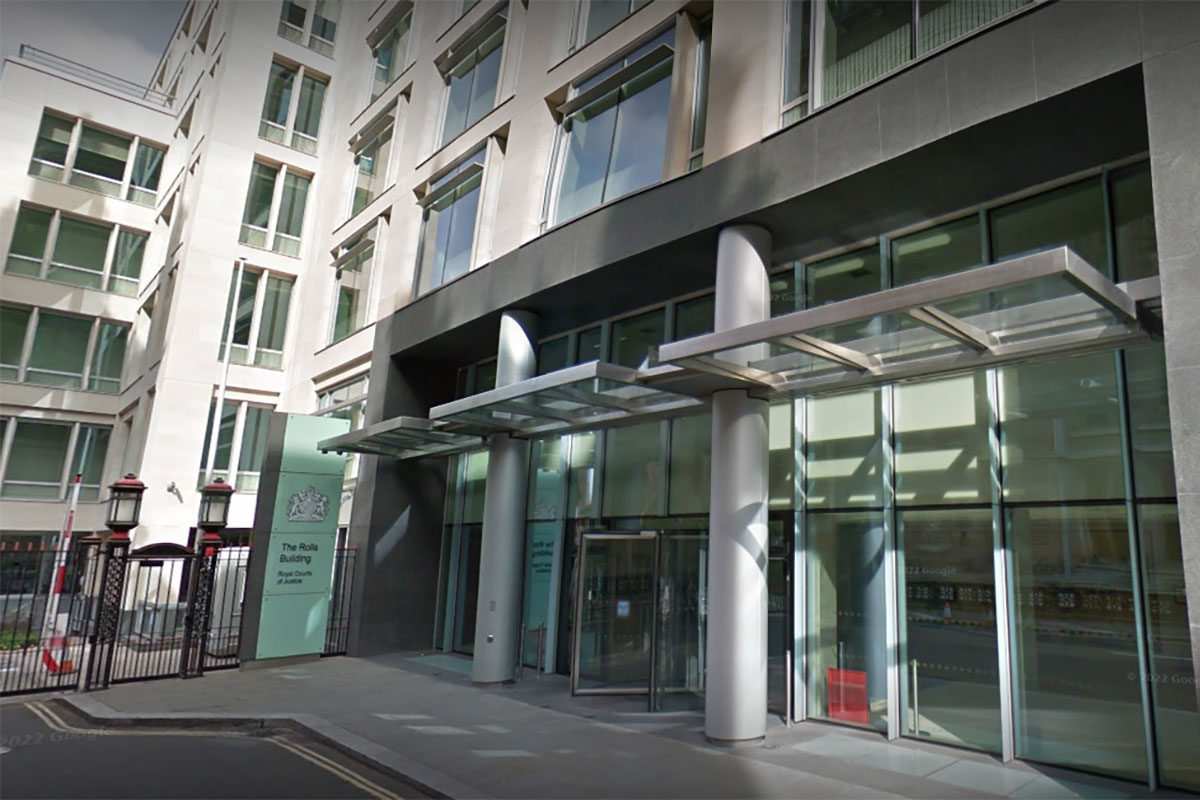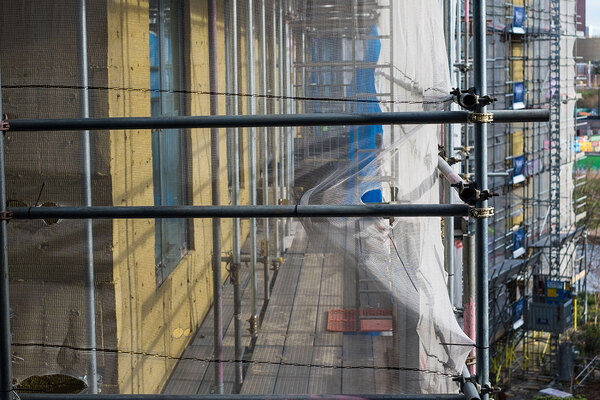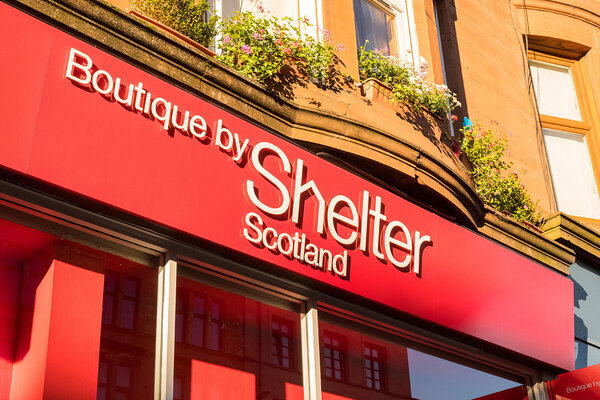You are viewing 1 of your 1 free articles
Tribunal on new legal route to secure funding for fire safety remediation work begins
A first-tier tribunal (FTT) involving an affordable housing provider that could set a precedent for who remediates and pays for fire-safety defects has begun in London.
Triathlon Homes, an affordable housing company, is seeking a remediation contribution order worth £16m from the FTT against Get Living, a build-to-rent company, to cover remediation costs in five apartment buildings in plot N26 of London’s Olympic Park in Stratford.
A remediation contribution order is a new legal power, introduced by the Building Safety Act 2022, that can force responsible parties to pay for the repair of fire-safety defects.
The applicant, Triathlon, is a joint venture between Southern and L&Q, the housing associations, and First Base, the investor, and is responsible for 1,379 affordable homes in East Village in the Olympic Park, where a multitude of fire-safety defects have been uncovered in recent years.
Market-rent homes in East Village are managed by Get Living, which Delancey launched in 2013 as a property management company. The developer acquired the Olympic Park with Qatari Diar, the Qatari royal family’s development arm, in 2011.
Get Living became a real estate investment trust (REIT) in 2018.
The case is understood to be one of the first times these new powers will be tested – and could set an important precedent for other blocks where developers or freeholders are refusing to provide funding.
On the first day of the hearing yesterday, Get Living argued that remediation funding to cover the safety defects has already been granted through the Building Safety Fund (BSF), but Triathlon maintains that the defects should not be paid for out of the public purse.
The blocks were originally developed through the Stratford Village Development Partnership (SVDP), a special-purpose vehicle created by the Department for Digital, Culture, Media and Sport, what was the Olympic Delivery Authority (ODA), to oversee the development, involving various private companies.
The entire Olympic Park was sold to a joint venture between Qatari Diar and Delancey after the Olympic Games, with Triathlon purchasing a lease on the affordable homes in East Village in 2009.
Fire safety remediation works in East Village are led by the estate management company and East Village Management Limited (EVML), the long leaseholder that is also a respondent in the case.
Inside Housing reported in July that Get Living had set aside £14.3m for EVML for the work in this case.
The remediation works needed on the five buildings included in the order involve the replacement of the entire external wall system, including the cladding, combustible insulation and balcony decking.
Get Living says the works, which began in January, are being done regardless of any order.
Around 200 leaseholders across East Village have been stuck, unable to sell the equity in their shared ownership properties since September 2020, when the defects were uncovered.
The FTT heard opening statements from Triathlon Homes and Get Living on Monday.
Richard Millett KC, representing Triathlon, argued that Get Living was seeking to distance itself from the original development by “claiming it is a know-nothing stranger” that “only came onto the scene in 2018”, but he said that was “obviously not correct”.
He said its insertion into the corporate structure was “not an arm’s-length acquisition” because the same people involved – Delancey – created Get Living, which he said was “extremely well capitalised”.
Alexander Nissen KC, also for Triathlon, told the FTT that Get Living argued there was no need for a remediation contribution order because the fire safety works would be carried whether or not the order was made.
He added: “We want to ensure by order that this proves to be true [because] it will be too late to come back if it turns out not to be true.”
He asserted that the fact that the works would be carried out was “not a reason for refusing the order”, arguing that the grant funding, and therefore the burden on the taxpayer, would be reduced if Get Living funded the costs.
Mr Nissen said the Greater London Authority (GLA) could reduce the grant funding if the applicant received or accepted funding from elsewhere.
He said the availability of public money “should have no impact on the making of a permanent liability order”, as public funding “is a last resort” and should not be seen as “primary funding”.
He also said it was acknowledged that there was a “shortfall between monies agreed for grant funding and the current forecast of outturn costs” and there was “no reason to believe” that further applications for funding would succeed.
As well as this, Mr Nissen said the party subject to the grant funding agreement, EVML, “positively supports the making of the order”.
EVML was granted £23.6m from the BSF, some of which has already been received.
According to the grant funding agreement, a further £10m is triggered once it receives building control approval.
Get Living’s representative, Jonathan Selby KC, confirmed that it was obtained on Friday, 10 November.
“That £10m should be in EVML’s account within two to three weeks,” he said.
The remaining monies will be transferred at later dates: £3.7m when 50% of the safety work is completed and £1.2m on practical completion.
Mr Selby said the tribunal must consider why the order was being applied for and why any order might be made.
He said there were three key factors to consider: whether remedial works were funded and underway, the security of funding, and the public purse argument.
He said Get Living’s view was that the “safety of residents is paramount” and that only became an issue “if you think the works won’t be completed”.
“The position is that the works are funded, underway and on target,” Mr Selby said.
“We submit that if there’s no good reason to make an order, don’t make one,” he said, adding that “courts don’t generally make an order if there is no reason to do so”.
On the security of funding, Mr Selby accused Triathlon of “doom-mongering” in its submissions, by claiming that funding could be withdrawn or would be insufficient.
He said Triathlon also described the grant funding as a loan. “It’s patently not a loan,” Mr Selby said, adding that it does not need to be repaid.
Mr Selby said the only way the funding could be put in jeopardy would be if a remediation contribution order was made.
“If you don’t make a remediation contribution order, the power of GLA to reduce the maximum sum is not engaged,” he said.
If no order is made, any concerns around the security of funding “fall away”, he said. “We submit that if there are any prospects of funding being withdrawn… those prospects are vanishingly thin.”
Mr Selby then questioned why anyone would want to jeopardise the BSF funding or “kill the golden goose”.
He said Get Living recognised the argument that the public should not have to pay.
“That argument would have more force if the application was made by the secretary of state or local authority, as opposed to Triathlon.
“Triathlon is patently not pursuing the application to replenish the public purse,” Mr Selby said.
He said if that were the case, “why isn’t the order drafted” in a way that would make a direct payment back to government or have any provision for EVML to pay back the money?
“In short, Triathlon’s apparent sanctimony does not stand up to scrutiny,” Mr Selby said, adding that the order was to “ensure that Triathlon does not pay for these remediation works”.
The FTT continues.
Sign up for our fire safety newsletter
Already have an account? Click here to manage your newsletters












